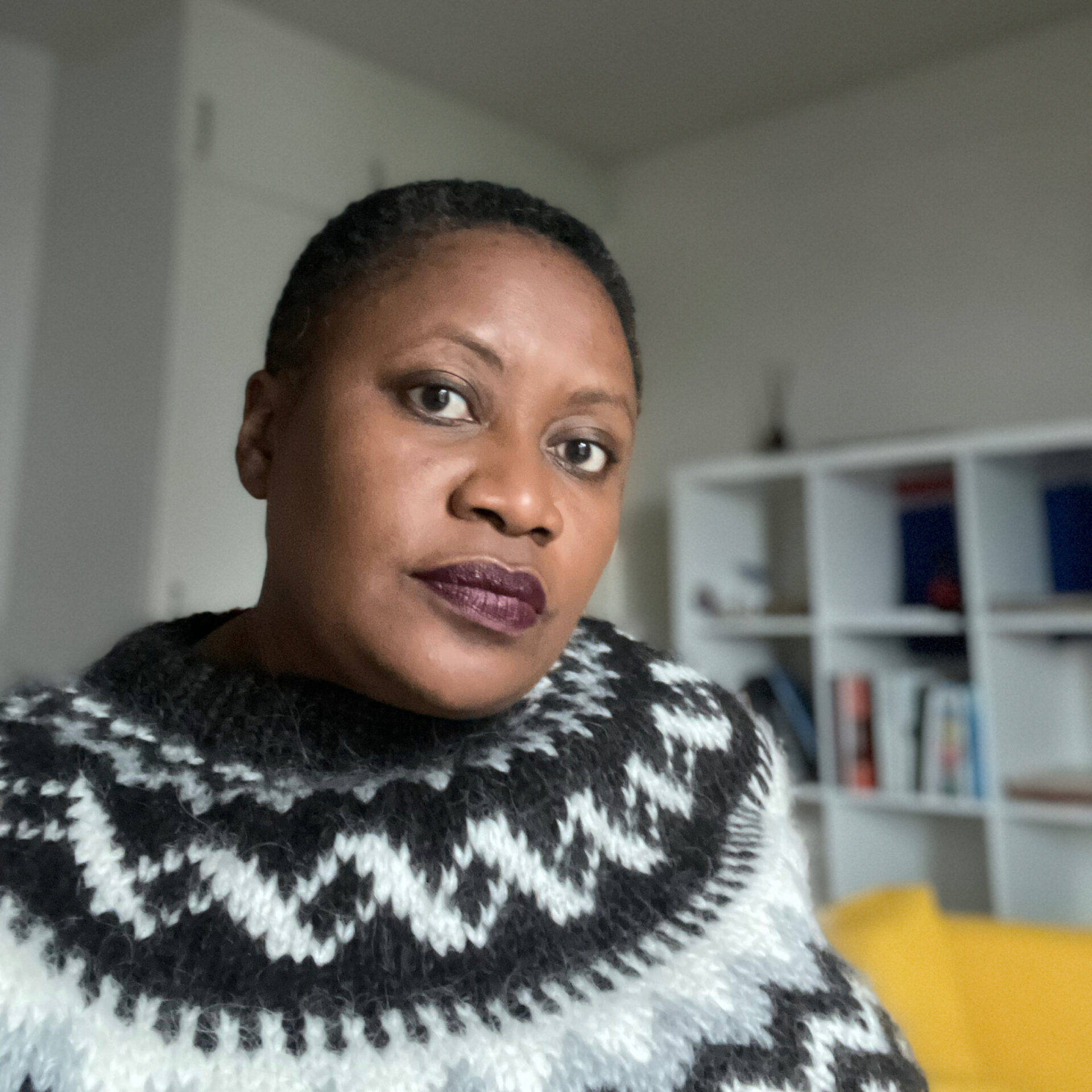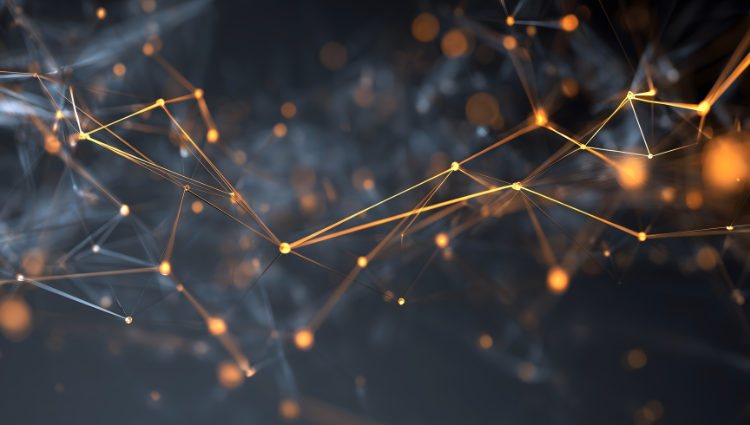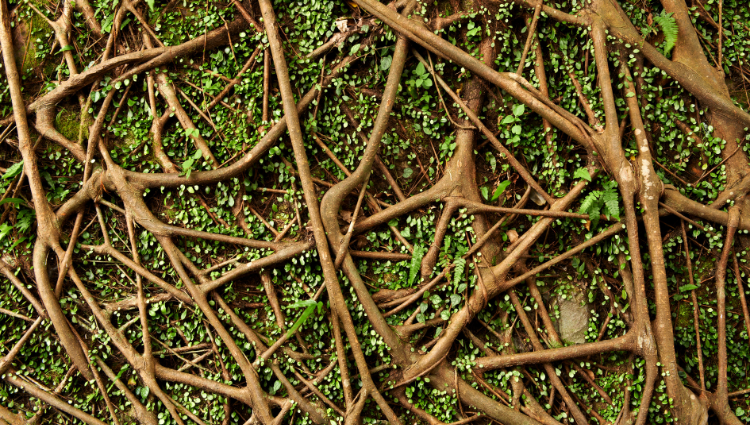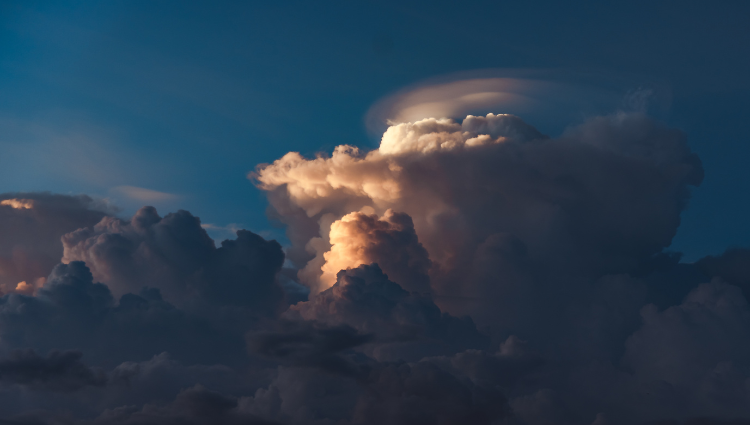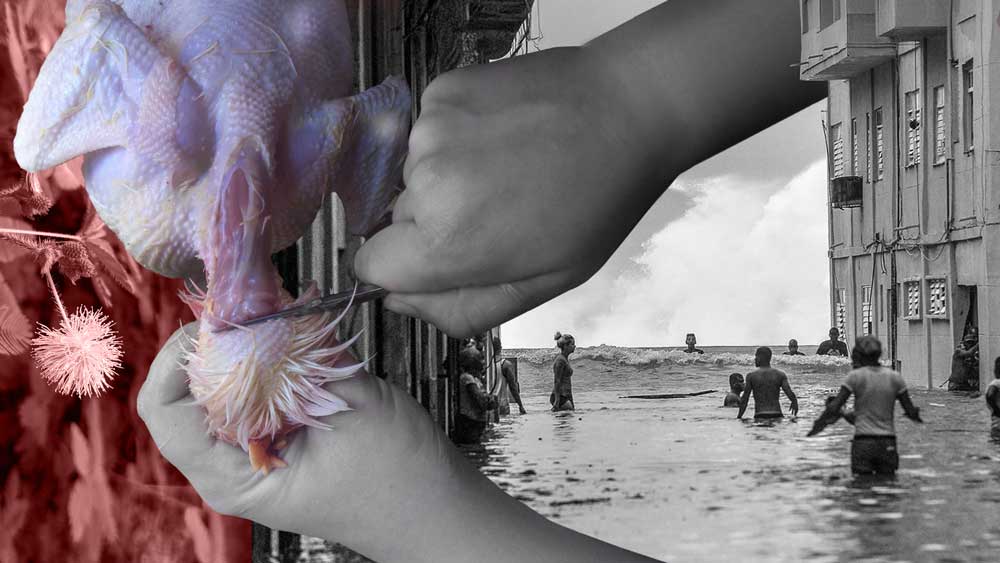Editorial Note: April Dobbins was a finalist for our Editors-in-Chief position for our 2025 Community Anthologies. We invited our finalists to write a short piece on the topic of their proposed anthology. Below, get insight into “On Connectivity,” the anthology topic that April had proposed for her Community Anthology.
I grew up in a rural area in the American South, where part of my core identity was being underserved and disconnected. When I lived on a dirt road, the school bus driver once refused to drive my uncles and me home for fear of getting stuck in the mud and being stranded in the middle of nowhere. Instead, he put us off the bus and made us walk the long road home. We set out on a deserted country road on our own. This was before the age of cell phones. During the advent of the cable and internet ages, my family had neither because companies did not service our area. Because I lived so far out in the countryside, I grew accustomed to being left out of social activities.
I first enjoyed regular internet access when I went away to college, and it made my nerd heart sing. For once, I felt a part of the larger world, connected in ways I could not be as a child. I talked to people across the globe. I discovered artists and writers that sent me running to museums and libraries to further explore their work. For a girl who had only known accessibility constraints, the internet was the holy grail of connectivity. My body and brain virtually hummed because this portal allowed me to be right at the center of things. The internet changed my life; it changed all of our lives. In no time, I begin to share my writing and photography online. In the early days, my online presence led to strong, real-life friendships and connections. I found mentors and peers online who are still close friends to this day.
Years later, internet culture began to shift. My connections grew more superficial and more of the work I encountered was counterfeit. Today, the internet feels like a chore because I must expend so much labor to distinguish what is real from what is fake. Checking my social media feeds fills me with dread because I will undoubtedly encounter offensive and utterly disheartening content, and I know that I am not alone. Writers like Jia Tolentino and August Lamm have penned thoughtful articles about how online connections make them feel increasingly disconnected from others, themselves, and reality. Other artists have written about illegal use of their books to train A.I. models.
A couple of years ago, I wrote an article for an established magazine. We negotiated terms for the article and the accompanying photos, and I was happy with the result. Recently, I came across a full reprint of that article, along with my personal childhood photos, on another website. My face grew flush as I scrolled through my family photos on a site completely unfamiliar to me. At that moment, I felt confused and vulnerable, but most of all I felt protective. Protective of my family members and of my childhood self. It incensed me to see my photos and words published without my express permission and without additional compensation. I did eventually learn from the original publisher that they gave permission for this reprint in good faith. Still, I felt left out of the loop. Deep down, I know that once my words leave my pen, they exist beyond my control, but they are, in my heart, still my words and my work.
My writing takes time and thoughtfulness, so it often takes me days to polish a piece. At most, I am paid $200 for those days of labor; more often, it’s considerably less. I am, I think, supposed to be happy with exposure, which has done little over the last three decades to lower my student loan balance or help me buy a place of my own. If we consume or benefit from creators’ art, writing, and music online, then what are our responsibilities to those creators? How can we honor the agency and privacy of others while documenting our lives for ourselves? How do we ensure that our levels of connection do not infringe upon someone else’s privacy, intellectual property, or profits?
Part of my work as an artist involves sharing my stories as part of the larger quilt that is human experience. I believe that sharing my own trajectory helps illuminate paths for others, and I have witnessed firsthand how my stories have moved people, whether that be by sharing valuable advice or by helping them feel seen and understood. However, as I age, I find myself repeatedly coming to a crossroads. Do I move my work offline and sacrifice reach for better authorial control, or do I stay online and watch as my work is stolen again and again?
Part of the beauty of the internet is that anyone can find their audience, and part of the beauty of technology is that we can produce and distribute work much more effectively. This would be less of a dilemma for me if the compensation for writing and art was reflective of the labor and the life of the work. As a working artist, I am often woefully underpaid for my intellectual property. There is endless demand for compelling stories and visual art—much of which will live forever online. This means that others will inevitably appropriate that work for their own benefit and profit, completely bypassing the artist whose creation brings them content, ad revenue, followers, and bragging rights. Last year, I deleted my artist website for good. For years, I used the site as an online portfolio of my film, photography, and writing work. Increasingly, I felt that sharing this work online was leaving it open to copyright infringement or the free training of machines. Now, I am hesitant to share my photography and film work anywhere.
Even more troubling, my decision to go offline with my work, image, and social life is no longer my own. At every reading or arts presentation, people capture me and my work in videos and photos and share them online without my consent. What are my options if I object to becoming fodder for someone else’s platform? The default thinking now is that if you exist outside of the realm of your own home, you consent to being digitally captured, and once captured, you have no control over where your image goes.
And so lately, I am retraining myself to find joy in private, everyday moments — the ones that don’t make it into any photographs, clouds, or feeds. I am moving away from the false sense of security and connectivity that the online world offers, but I am still struggling to find ways to successfully share my art in a hyperconnected world. For most artists, genuine connection with our communities is a precious, sacred thing. In order for us to survive and thrive, we must ensure that the means through which we share our work are not extractive and exploitative, but consensual, generative and respectful of our ownership.
